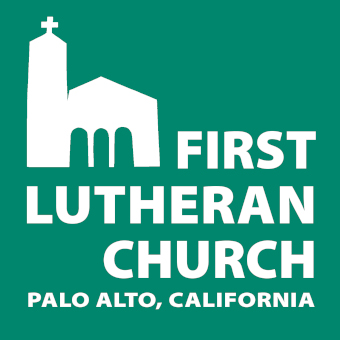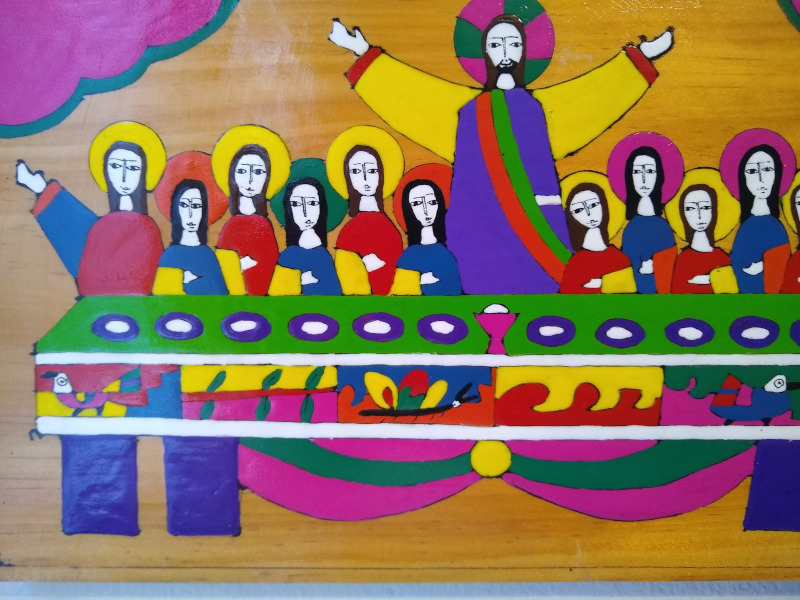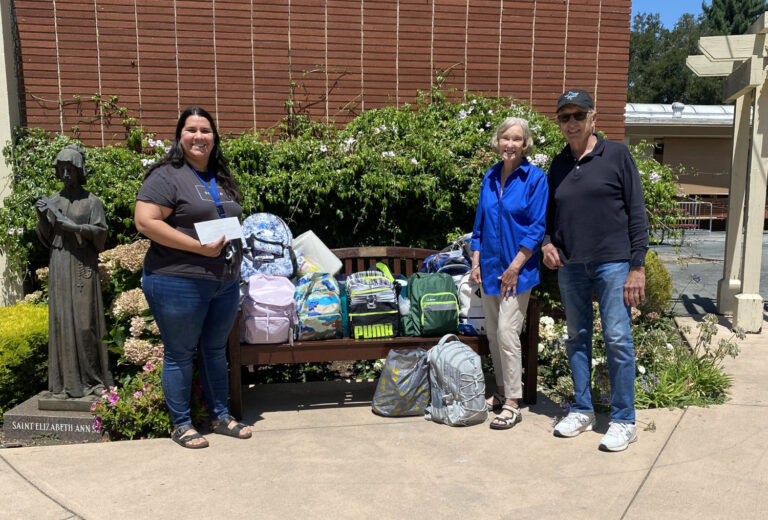by Pastor Bernt
Issues around immigration can be complex, and FLC people have a variety of opinions on these issues. So what grounds or motivates our common work in ministry with immigrants, migrants and refugees? Here are some of my thoughts. Your questions, disagreements and comments are welcome.
First, it’s tradition. Our national church’s social message on immigration (1998) points out that ministry with immigrants isn’t anyh new trend. First Lutheran was itself started in support of Swedish immigrants. We welcomed some 38 Eastern European refugees after WWII, and later on refugees from Vietnam, Chile and Central America. We’ve been a sanctuary congregation for many years. More recently, we’ve accompanied people seeking asylum from dangerous circumstances in their home countries.
It’s also about God’s commandment. The aforementioned social message quotes from Leviticus 19, which is basically where the golden rule originates:
“When an alien resides with you in your land, you shall not oppress the alien. The alien who resides with you shall be to you as the native-born among you; you shall love the alien as yourself, for you were aliens in the land of Egypt: I am the Lord your God.”
God’s people aren’t just told what to do, but invited to reflect on their own history as the basis of compassion. In the New Testament, Jesus says he’ll be with us in our encounters with vulnerable strangers needing our hospitality (Matthew 25:31-46).
This ministry focus is about care for the poor and vulnerable. It seems to me that in Palo Alto itself, many immigrants are well off. But in the greater Bay Area, many of those who do struggle most for food, just wages, healthcare and security are immigrants or migrants. The 1998 social statement mentions our tendency to scapegoat outsiders. I’ve been concerned lately at how the tensions and troubles in our society get blamed on the poor and powerless. What’s our responsibility as the rich and powerful?
We don’t just take care of “our own” families and people; we cross boundaries. For Easter season I suggested a theme of ethnic diversity as spiritual gift and heavenly hope ( … all the new hymns we’ve been singing!). We do enjoy international travel and the presence of people from far off places. At worship this Summer we’ll hear the famous story of the Good Samaritan (Luke 10). The question posed to Jesus is: who is the neighbor I’m to love as myself? Jesus’ response is to tell how a man left beaten by the road, neglected by his compatriots, was cared for not just by a foreigner, but an enemy Samaritan. Our neighbor is the “one who shows mercy.” We’re challenged and set free to help those beyond our immediate circles.
Our church constitution states that the purpose of this congregation is to: “Worship God in proclamation of the Word and administration of the sacraments and through lives of prayer, praise, thanksgiving, witness, and service,” and to, “Serve in response to God’s love to meet human needs, caring for the sick and the aged, advocating dignity and justice for all people, working for peace and reconciliation among the nations, and standing with the poor and powerless, and committing itself to their needs.” (Among a few other tasks, see here). Our ministry with migrants, immigrants and refugees is part of how we can do this together.







